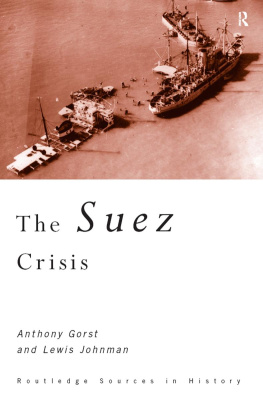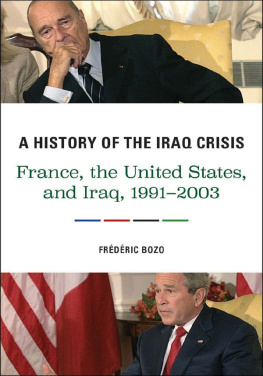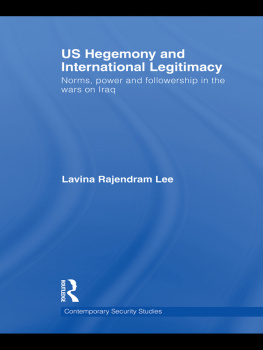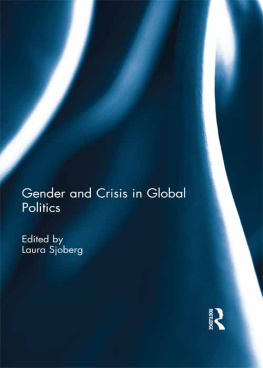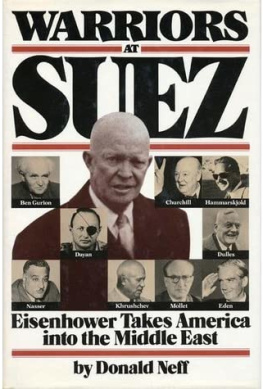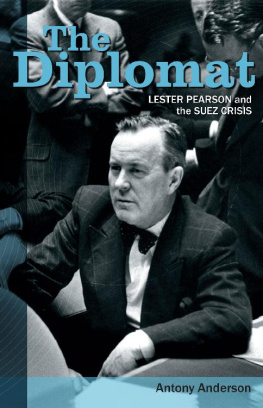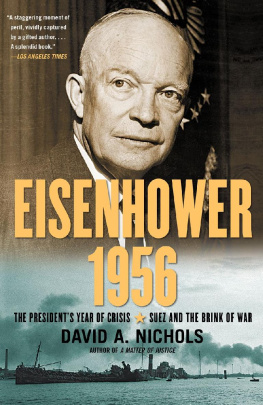THE POLITICS OF JUSTIFYING FORCE
The Politics of Justifying Force
The Suez Crisis, the Iraq War, and International Law
CHARLOTTE PEEVERS


Great Clarendon Street, Oxford, OX2 6DP,
United Kingdom
Oxford University Press is a department of the University of Oxford.
It furthers the Universitys objective of excellence in research, scholarship, and education by publishing worldwide. Oxford is a registered trade mark of Oxford University Press in the UK and in certain other countries
Charlotte Peevers 2013
The moral rights of the author have been asserted
First Edition published in 2013
Impression: 1
All rights reserved. No part of this publication may be reproduced, stored in a retrieval system, or transmitted, in any form or by any means, without the prior permission in writing of Oxford University Press, or as expressly permitted by law, by licence or under terms agreed with the appropriate reprographics rights organization. Enquiries concerning reproduction outside the scope of the above should be sent to the Rights Department, Oxford University Press, at the address above
You must not circulate this work in any other form and you must impose this same condition on any acquirer
Crown copyright material is reproduced under Class Licence Number C01P0000148 with the permission of OPSI and the Queens Printer for Scotland
Published in the United States of America by Oxford University Press
198 Madison Avenue, New York, NY 10016, United States of America
British Library Cataloguing in Publication Data
Data available
Library of Congress Control Number: 2013940018
ISBN 9780199686957
Printed in Great Britain by
CPI Group (UK) Ltd, Croydon, CR0 4YY
Links to third party websites are provided by Oxford in good faith and for information only. Oxford disclaims any responsibility for the materials contained in any third party website referenced in this work.
Afterwards, of course, there were endless discussions about the shooting of the elephant. The owner was furious, but he was only an Indian and could do nothing. Besides, legally I had done the right thing, for a mad elephant has to be killed, like a mad dog, if its owner fails to control it. Among the Europeans opinion was divided. The older men said I was right, the younger men said it was a damn shame to shoot an elephant for killing a coolie, because an elephant was worth more than any damn Coringhee coolie. And afterwards I was very glad that the coolie had been killed; it put me legally in the right and it gave me a sufficient pretext for shooting the elephant. I often wondered whether any of the others grasped that I had done it solely to avoid looking a fool.
George Orwell, Shooting an Elephant in Orwell Shooting an Elephant and Other Essays. (Secker and Warburg, 1950)
Acknowledgements
This book began life first as an intuition and then as a doctoral thesis. For guiding me through those early stages of discovery, frustration, and experimentation I thank my supervisors at the London School of Economics: Christopher Greenwood, Nico Krisch and Andrew Lang. As a doctoral candidate and Fellow at the LSE I benefited immensely from a vibrant research culture and stimulating peers. I gratefully acknowledge the generous funding from the following: the Judge Higgins Scholarship, the Morris Finer Memorial Scholarship, the Wedderburn Grant, and the Law Research Studentship.
I thank the following research archives for their invaluable assistance and patience: the Churchill Archives, Cambridge (papers of Selwyn Lloyd and Lord Kilmuir); the Conservative Party Archive, Oxford University; the Labour Party Archives, Manchester; the Gaitskell Papers at University College, London; the British Library Newspaper Archive (Colindale); and a special thanks to the Public Records Office, Kew.
I thank my doctoral examiners Susan Marks and Ralph Wilde for giving me the confidence to publish, and guidance in making the journey from doctoral thesis to book manuscript. I also thank the commissioning, production, and marketing teams at Oxford University Press, and the generous reviewers who showed such enthusiasm for the project. I have had the good fortune of friends who have challenged, supported, and inspired in equal measure the various manifestations of my ideas. To my ever-available and ever-patient readers I am especially grateful, to Akbar Rasulov, Jacqui Mowbray, Luis Eslava, Nikolas Rajkovic, Rose Parfitt, Shaunnagh Dorsett, Usha Natarajan, and in particular to Olivia Barr. I am also grateful to Flordeliz Bonifacio for careful and timely research assistance on the final manuscript. I pay particular tribute to my mother who listened to draft after draft with such grace and care. Needless to say, all errors, omissions, and opinions remain my own.
Having travelled 10,000 miles during the journey to publication I thank my colleagues at the University of Technology, Sydney for helping me find my feet in a foreign land, and to my friends and family who have stayed so close despite our distance. My greatest thanks go to Neil for sharing these journeys with me. To our newborn son Julian, who laboured with me during the final stages of writing, thank you for giving us the prospect of yet more journeys to share.
This book is for Neil.
Charlotte Peevers
Sydney,
September 2013
Table of Contents
The Suez Crisis
Sir Anthony Eden | British Prime Minister |
Hugh Gaitskell | Leader of the Opposition, Labour Party |
Harold Macmillan | Chancellor |
Selwyn Lloyd | Foreign Secretary |
Sir Harold Caccia | Foreign Office Under-Secretary |
Sir Ivone Kirkpatrick | Prime Ministers Private Secretary |
William Clark | Prime Ministers Press Officer |
Sir Alexander Cadogan | Chairman of the Board of Governors, BBC |
David Maxwell Fyfe, Lord Kilmuir | Lord Chancellor |
George Coldstream | Permanent Secretary to the Lord Chancellor |
Sir Gerald Fitzmaurice | Foreign Office Legal Adviser |
Francis Vallat | Foreign Office Deputy Legal Adviser |
Reginald Manningham-Buller | Attorney-General |
Sir Harry Hylton-Foster | Solicitor-General |
Sir Pierson Dixon | British Ambassador to the United Nations |
Robert Makins | British Ambassador to the United States |
Dwight Eisenhower | US President |
John Foster Dulles | US Secretary of State for Foreign Affairs |
Gamal Abdel Nasser | Egyptian Leader (referred to as Colonel or President) |
Mahmoud Fawzi | Egyptian Foreign Minister |
Dag Hammerskjld | Secretary General of the United Nations |
Robert Menzies | Australian Prime Minister |
Next page

